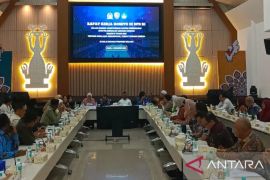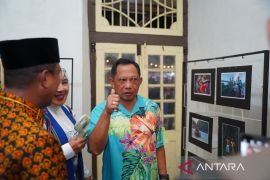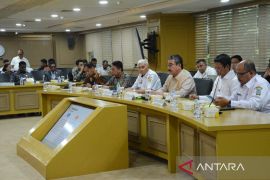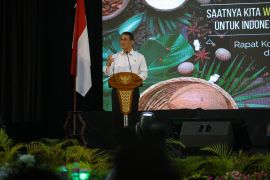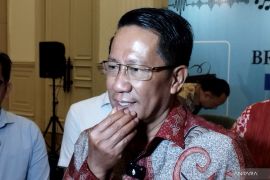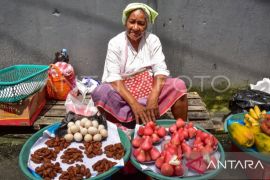But Maluku Governor Karel Albert Ralahalu has called on the local people to make differences and diversity a force to strengthen brotherhood among themselves.
The governor perhaps referred to the serious fighting that erupted in January 1999 between the Muslim and Christian communities in the islands of Maluku province.
In the two years that the fighting lasted, 5,000-8,000 people were killed and 500,000 others displaced from their homes.
Houses of worship were especially targeted and more than 100 mosques and churches were destroyed or damaged.
During the first 15 months of the conflict, the fighting between the two groups, largely cyclical reprisals, resulted in a more or less equal number of fatalities on each side.
The apparent spark that led to the outbreak of fighting was reported to have been an argument in Ambon city between a Christian public transport driver and at least one Muslim passenger.
The argument soon deteriorated into a brawl and then spiraled into several days of mob violence, and then spread to other islands, thus beginning the cyclical pattern.
Much of the initial anger on the Christian side was directed at Muslims from outside the region rather than at native Muslims in Maluku.
But let bygones be bygones.
In a Halal Bihalal friendship gathering, attended by members of both the Muslim and Christian communities in the provincial city of Ambon on Wednesday, the governor said they should not use the differences as a constraint to coexist in perfect harmony.
"The differences and diversity are something beautiful that can be a force to strengthen brotherhood in the frame of the ancestral culture of Pela-Gandong for the betterment of Maluku," Ralahalu aid.
Pela is based on friendship between two villages and Gandong indicates brotherhood between two or more villages based on genealogical links.
Thus Pela-Gandong is a traditional wisdom of the Maluku people underlining that all men are related to each other and therefore they should always live in peace.
It is because of Pela-Gandong traditional wisdom that if a group of people is building a house of worship, people belonging to another group must help and support it.
Ralahalu said the world should know the Pela-Gandong cultural value was still very much alive in Maluku and being practiced with greater fervor since the end of the communal conflict several years ago.
Governor Ralahalu then expressed hope that the Halal Bihalam friendship gathering could serve as a momentum to give and receive forgiveness for both intentional and unintentional past misdeeds.
According to the governor, such a relation and peaceful coexistence should be reflected in a harmonious friendship and brotherhood in a bid to make Maluku more peaceful.
"Our bond of friendship and brotherhood should continue to be strengthened regardless of racial, religious, and ethnic background," Ralahalu said.
The governor reiterated that the Halal Bihalal friendship gathering could be used as part of the process of spiritual learning to exercise self-refrain, to control the passions, to be honest, and to be patient in the national and state family life.
Meanwhile, Maluku regional office of religious ministry spokesman Muhammad Attamimi said the Halal Bihalal friendship gathering in the province should continue to serve a power to strengthen the solidarity and togetherness in the province.
"The basic meaning of Halal Bihalal is that we have to firstly forgive others before they ask for forgiveness from us," Atamimi said.
Stan Jackson of Brooklyn Park, Minnesota, once said that without the ability to forgive, the ability to feel forgiven, and the ability to forget the trespass, people cannot grow in a relationship.
"Any relationship which is strong, healthy, and growing includes these three parts: The ability to forgive, to be forgiven, and to forget," he said.
According to him, forgiveness is not an emotion, it is an act of the will, and before forgiveness can occur, one must decide by an act of the will that he or she wants to forgive. Thus the decision comes first, the emotion comes later.
So much so that Corrie ten Boom in her book the "Hiding Place", gives a beautiful illustration of this point.
In 1947, after a lecture on forgiveness in Germany, Corrie was forced to put her words into action.
A former guard from Ravensbruck whom she recognized, asked for Corrie`s handshake and forgiveness.
At first, Corrie could not do it because all the horrors of the concentration camp were too vivid and painful for her to forgive the former guard from Ravensbruck.
But she prayed and asked God at least to allow her the mechanical movements of a handshake, and then she willed that she would forgive the guard, and then the power of forgiveness moved between them.
Therefore, Muhammad Attamimi also called on Muslim community in Maluku to remain keeping the essence of Ramadan after a month of fasting.
"The ability to forgive must continue to characterize our lives because it is the essence of what Halal Bihalal is all about," Atamimi added. (*)
Reporter: Otniel Tamindael
Editor: Otniel Tamindael
Copyright © ANTARA 2011

